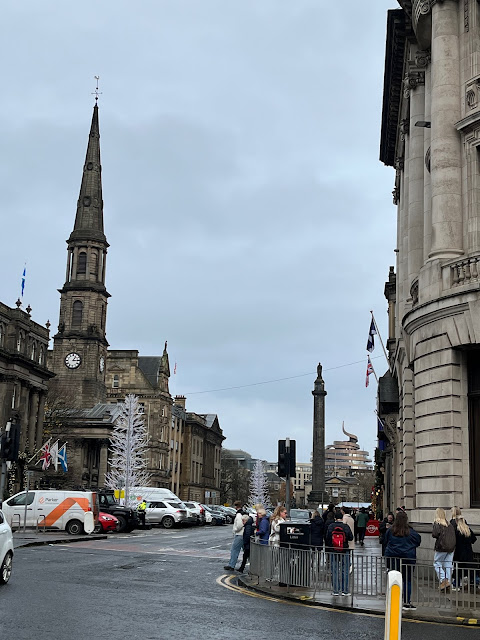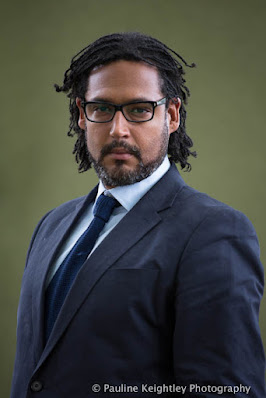Nigel Leask rites Burns has been tragically over-looked in academic studies and the need to consider Burns in a de-centralized four nation approach to British culture and of the marginalisation of Burns as a major Romantic poet.
The book is entitled 'Scottish Pastoral: Robert Burn and British Romanticism' Leask
sets out to recover a major Romantic poet in a Scottish, British, and colonial context. Burns's fame as Scotland's national bard, and his influence on Scottish writers like Hogg, Scott, Elizabeth Hamilton, Lockhart, Wilson and Carlyle, has achieved local recognition. The goal of this book is to reassess the global significance of Scottish and British Romanticism in the light of Burns's achievement and influence. ' And a more historically contextualised notion of the Scottish Enlightenment. And to situate Burns and 18th century Scottish poetry in relation to Enlightenment theories.
But much light remains to be cast on his literary and intellectual context in the Scottish Enlightenment, as well as his far-reaching influence on English and Irish Romantic writers like Wordsworth, Coleridge, Lamb, Roscoe, Byron, Shelley, Keats, Clare, Hazlitt, De Quincey Tom Moore and J.C.Mangan.
MUSIC - Burns is best known as a songwriter and song collector
Burns's poetry is now largely excluded from a revised canon of Romantic literature as it is taught in UK and US English departments, despite the fact that the canon has broadened to include women and minority writers. In fact the decline of his reputation as a major Romantic poet has continued measurably even since 1945. Astonishingly, there is to date no dedicated study of Burns's influence on British Romanticism.
Contemporary Burns scholarship is still largely concerned with studying the poet in a national literary framework, despite important recent work by Carol McGuirk, Liam McIllvanney, Robert Crawford and Gerry Carruthers, opening up Burns to broader contexts.
Robert Burns was part of an attempt to produce a canon of Scottish song, which resulted in a cross fertilisation of Scottish and continental classical music, with romantic music becoming dominant in Scotland into the 20th century.
Robert Burns (1759–96) and Walter Scott (1771–1832) were highly influenced by the Ossian poems. Burns, an Ayrshire poet and lyricist, is widely regarded as the national poet of Scotland and a major influence on the Romantic movement. His poem (and song) "Auld Lang Syne" is often sung at Hogmanay (the last day of the year), and Scots Wha Hae served for a long time as an unofficial national anthem of the country. Burns A Mans a Man as sung by Sheena Wellington at the opening of the Scottish parliament.
Novelist Walter Scott popularised Scottish cultural identity 19th century. He played a major part in defining Scottish and British politics, helping to create a romanticised view of Scotland and the Highlands that changed Scottish national identity. Tom Nairn argues to a false mythical Scotland gone forever. Scott has a highly successful career, with other historical novels - Rob Roy (1817), The Heart of Midlothian (1818) and Ivanhoe (1820)
Burns was greatly influenced by Scots poets Allan Ramsay, James Macpherson, and Robert Fergusson – who wrote poems in scots about Edinburgh. And English poets such as Alexander Pope. Allan Ramsay(1686–1758) laid the foundations of a reawakening of interest in older Scottish literature, as well as leading the trend for pastoral poetry, developed the Habbie stanza as a poetic form.
James Macpherson(1736–96) was the first Scottish poet to gain an international reputation. Claiming to have found poetry written by the ancient bard Ossian, he published translations that were internationally popular, being proclaimed as a Celtic equivalent of the Classical epics. Fingal, written in 1762, was translated into European languages, and its appreciation of natural beauty and treatment of the ancient legend has been credited more than any single work with bringing about the Romantic movement in European, and in German literature (Johann Herder and Johann Goethe). Also popular in France –read by Napoleon.
Other major Scottish literary figures connected with Romanticism include the poets James Hogg (1770–1835), Allan Cunningham (1784–1842) and John Galt (1779–1839). One of the most significant figures of the Romantic movement, Lord Bryon, was brought up in Scotland until he acquired his English title.
**Romanticism in Scotland II
was an artistic, literary and intellectual movement late 1700s and early 1800s.
Part of the wider European romantic movement, which was partly a reaction against the Age of Enlightenment, emphasizing individual, national and emotional responses, moving beyond Renaissance and Classical models. In the arts, Romanticism manifested itself in literature with the mythical bard Ossian, the exploration of national poetry in the work of Robert Burns and in the historical novels of Walter Scott. Scott also had a major impact on the development of a national Scottish drama. Art was heavily influenced by Ossian and of the Highlands as the location of a wild and dramatic landscape.
In music,
In art there was a stress on imagination, landscape and a spiritual correspondence with nature. It has been described by Margaret Drabble as "an unending revolt against classical form, conservative morality, authoritarian government, personal insincerity, and human moderation" Although after union 1707 Scotland increasingly adopted English language and cultural norms, its literature developed a distinct national identity and began to enjoy an international reputation.
The editors of the recent essay collection Scotland and the Borders of Romanticism argue, from the 19th century Scottish literature came to stand for an 'inauthentic Romanticism, defined by a mystified commitment to history and folklore', in marginal relationship to an 'organic' English Romanticism.
Scotland was also the location of two of the most important literary magazines of the era, The Edinburgh Review, (1802) and Blackwood Magazine(1817)which significantly influenced the development of British literature and drama in the era of Romanticism.
Romanticism declined in the 1830s, but it continued to affect music and art. It had a lasting impact on the nature of Scottish identity and outside perceptions of Scotland. It is often thought to incorporate an emotional assertion of the self and of individual experience along with a sense of the infinite, transcendental and sublime.
 |
| James MacPherson |
Robert Burns and Pastoral is a full-scale reassessment of the writings of Robert Burns (1759-1796), arguably the most original poet writing in the British Isles between Pope and Blake, and the creator of the first modern vernacular style in British poetry. Although still celebrated as Scotland's national poet, Burns has long been marginalised in English literary studies worldwide, due to a mistaken view that his poetry is linguistically incomprehensible and of interest to Scottish readers only.
Nigel Leask challenges this view by interpreting Burns's poetry as an innovative and critical engagement with the experience of rural modernity, namely to the revolutionary transformation of Scottish agriculture and society in the decades between 1760 and 1800, thereby resituating it within the mainstream of the Scottish and European enlightenments. Detailed study of the literary, social, and historical contexts of Burns's poetry explodes the myth of the 'Heaven-taught ploughman', revealing his poetic artfulness and critical acumen as a social observer, as well as his significance as a Romantic precursor. Leask discusses Burns's radical decision to write 'Scots pastoral' (rather than English georgic) poetry in the tradition of Allan Ramsay and Robert Fergusson, focusing on themes of Scottish and British identity, agricultural improvement, poetic self-fashioning, language, politics, religion, patronage, poverty, antiquarianism, and the animal world. The book offers fresh interpretations of all Burns's major poems and some of the songs, the first to do so since Thomas Crawford's landmark study of 1960. It concludes with a new assessment of his importance for British Romanticism and to a 'Four Nations' understanding of Scottish literature and culture.




























.jpg)



.jpg)












